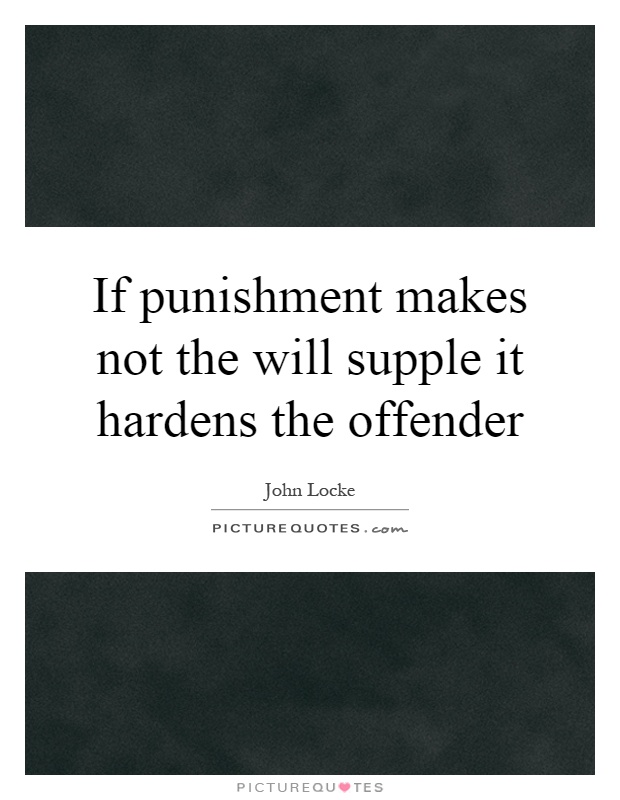If punishment makes not the will supple it hardens the offender

If punishment makes not the will supple it hardens the offender
John Locke, a prominent philosopher of the Enlightenment era, believed in the importance of understanding human nature and the role of punishment in shaping behavior. In his work, Locke argued that punishment should not only serve as a means of retribution, but also as a tool for rehabilitation and reform. He believed that punishment should be used to make the will of the offender more supple, rather than hardening them further.Locke's belief in the malleability of human nature is evident in his statement, "If punishment makes not the will supple it hardens the offender." This idea suggests that punishment should not simply be about inflicting pain or suffering on the offender, but rather about helping them to learn from their mistakes and become better individuals. Locke believed that punishment should be used as a means of correcting behavior and guiding individuals towards a more virtuous path.
Locke's emphasis on the importance of making the will supple through punishment reflects his belief in the power of education and moral guidance. He believed that individuals have the capacity to learn from their mistakes and change their behavior for the better. By using punishment as a means of teaching and guiding individuals towards a more virtuous path, Locke believed that society could help offenders to become better members of the community.
Locke's views on punishment were influenced by his belief in the social contract and the importance of individual rights. He believed that punishment should be used in a way that respects the dignity and autonomy of the individual, rather than simply inflicting pain or suffering on them. By making the will of the offender more supple through punishment, Locke believed that society could help offenders to learn from their mistakes and become better individuals.












 Friendship Quotes
Friendship Quotes Love Quotes
Love Quotes Life Quotes
Life Quotes Funny Quotes
Funny Quotes Motivational Quotes
Motivational Quotes Inspirational Quotes
Inspirational Quotes